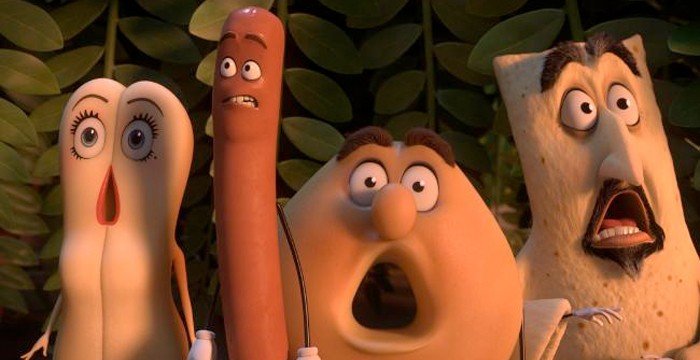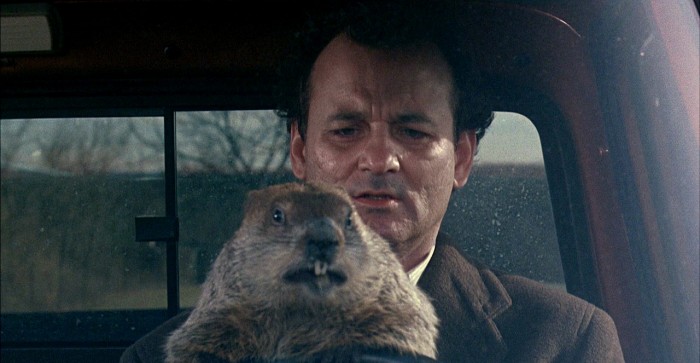'Dumb & Dumber' Co-Director Talks Thin-Skinned Audiences And The Modern Comedy Scene
The art of comedy is one that is constantly evolving. While there is some consistency in what people find funny, the style of comedy fluctuates and changes over the years. But if there's one thing that is having a big impact on the state of comedy right now, it's how people react to it. In the age of Twitter, it's easy for people to get outraged about something and suddenly have an army of people vocalizing their anger online. Some of these movements are justified and can have a significant impact on society's behavior while others are just people who take every opportunity to be offended.
There's Something About Mary and Dumb and Dumber co-director Bobby Farrelly recently participated in a panel at the Sun Valley Film Festival where he talked about the state of modern comedy, which involves thin-skinned audiences and a lack of mid-budget feature comedies. There's a lot to chew on here.
Touchy Audiences
Farrelly isn't quite the cornerstone of American comedy that he was in the 1990s and early 2000s, when he and his brother Peter Farrelly were directing some of the most popular comedies at the time. But he's still very much ingrained in the world of comedy, and he's noticed that people are rather touchy about what makes them laugh (via IndieWire):
"People are very thin-skinned about a lot of subjects. You can't even joke about them. These aren't the days of Lenny Bruce, when you could try a bunch of different things and break rules. Now, people are sensitive. But I think it'll change. It's a cyclical thing. Someone will come along who's doing it differently, a modern-day Joan Rivers who can make people laugh about being sensitive."
Much of this sensitivity comes from people witnessing others being offended by jokes. If they see someone else being offended by something, then they think they need to be offended to. It's gone from Lenny Bruce being arrested for using offensive language in a comedy club to comedians being attacked on social media and ultimately forced to apologize for making a joke. That's not how comedy works, though.
While you can find clean comedy that doesn't push any buttons, much of the most successful comedy is irreverent, bold, and goes against the grain of what people expect to see and hear from everyday people. We like comedians and the movies and TV shows they make because they figure out how to say the things that we all think in our heads. Sometimes that's inappropriate, sometimes it's disrespectful, but that's kind of the point. A racial joke may be derisive but that doesn't mean it's inherently racist. But most people simply don't understand the process that comes with figuring out how to perfect a joke that can be edgy without crossing the line. Much of the outrage about jokes that are deemed "offensive" come from people who are unable or unwilling to understand the intent of a joke, only looking at the surface punchline.
This is a topic that can be discussed endlessly, but what it comes down to is that comedy is subjective, and what one person finds funny won't make another crack a smile. Comedy isn't something that can be policed or judged hastily or generally. Therefore, holding every single comedian to the standards of an indecipherable mob that lets their cultural sensitivity deem what's funny isn't doing comedy any favors. BBC has a great article from a couple years ago with insight from plenty of edgy comedians to provide even more context for those who are interested.
The Disappearance of Comedy Stars and Mid-Budget Movies
Regardless of the audience, the level of comedy we're getting in the feature film department, and who is giving it to us, has changed drastically. Farrelly points out that studios aren't making a lot of comedies anymore:
"They don't make very many comedies anymore, if you look at the marketplace. Comedies are really the one thing that's gone by the wayside."
Part of the reason for that is studios have pulled back from making a lot of mid-range budget movies. Bobby and Peter Farrelly used to make comedies that cost under $40 million, but those kind of comedies really don't get made anymore. Farrelly adds, "Those are the movies that have been kind of kicked to the curb right now. Some other stories just really aren't being told like they were 10 or 15 years ago." That's not just a problem for comedies, but any kind of movie. Nowadays, a movie is either a low budget indie or a big budget tentpole. There are very few movies in between anymore.
Another reason for this shift is a lack of big comedy stars. While there are still some recognizable names who consistently make us laugh on the big screen, the roster of comedy stars isn't quite as broad as it used to be. Farrelly observed, "There's only a few people that mean anything in the world of comedy nowadays. Mainly, it's women, the Melissa McCarthys. And they're hysterical."
Melissa McCarthy is one of the few bankable names in comedy, along with people like Seth Rogen, Will Ferrell, Kristen Wiig, Tina Fey, Amy Poehler, Steve Carell and Adam Sandler. But even those names don't always guarantee a big hit comedy for studios, which means less risks are being taken.
This has resulted in comedies that don't venture too far outside of the box of what audiences are perceived to enjoy. This is why we get comedies that are often on a larger scale than they need to be. I miss the days of movies like National Lampoon's Animal House, Ferris Bueller's Day Off, Coming to America, Clueless or Office Space. Those are comedies where the premise is simple, there's little focus on a plot, but an emphasis on great characters. Even a movie with a high concept like Groundhog Day didn't need some kind of convoluted plot to keep the story interesting.
Nowadays, comedies try to do too many things in addition to being funny, when simply being funny is already one of the most difficult things to do. A lot of big comedies try to bite off more than they can chew and the result can be something that has mediocre comedy along with lames attempts at action, romance or mystery. Movies like Step Brothers, Bridesmaids and Superbad are rarities. Then something like The Hangover comes along, and every studio thinks they can replicate the formula and capture lightning in a bottle again without realizing that creating a movie like that was a small miracle. The result is a bunch of copycat comedies that are barely worth a chuckle. But that's an entirely different problem altogether.

